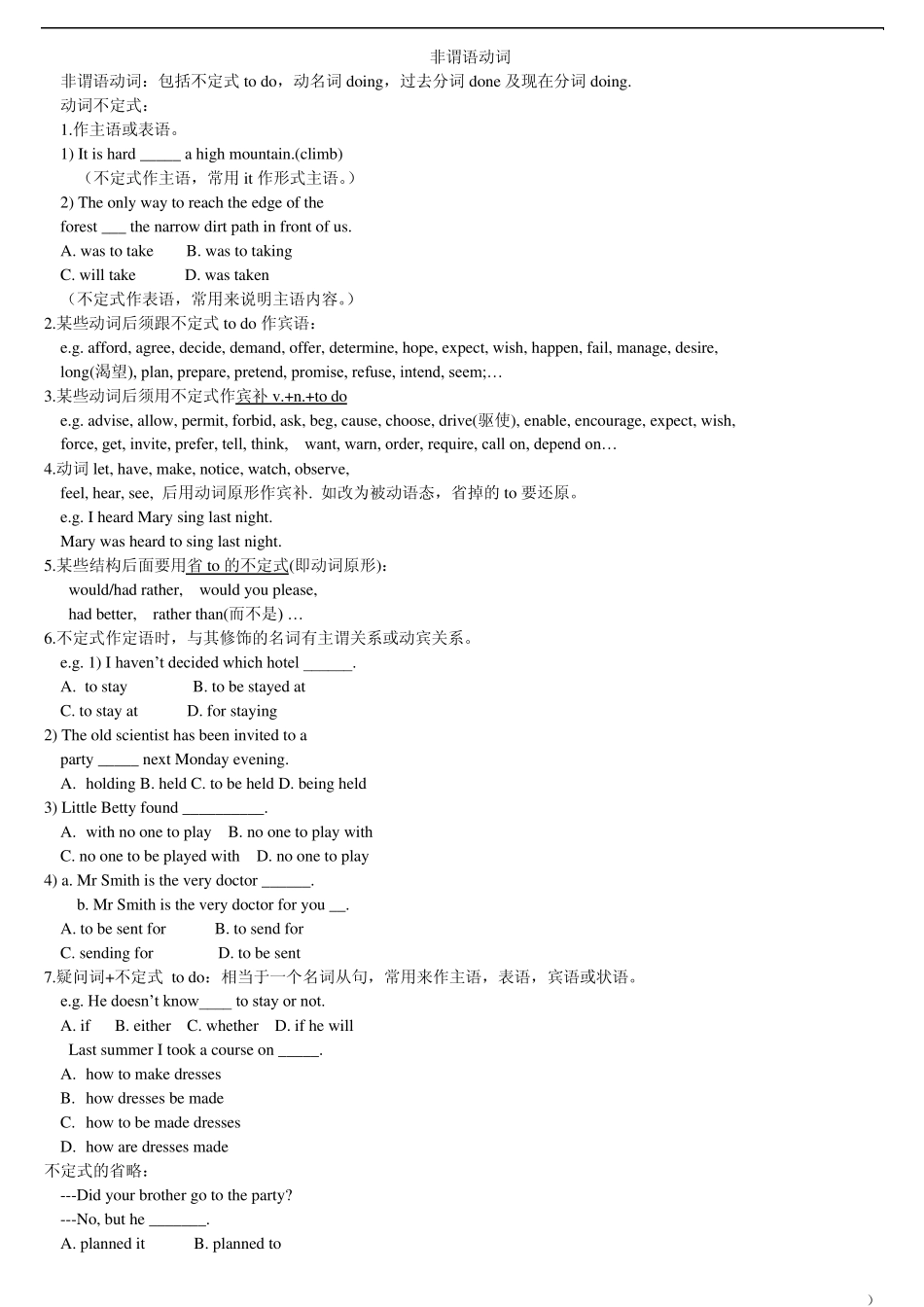) 非谓语动词 非谓语动词:包括不定式to do,动名词doing,过去分词done 及现在分词doing. 动词不定式: 1.作主语或表语。 1) It is hard _____ a high mountain.(climb) (不定式作主语,常用 it 作形式主语。) 2) The only way to reach the edge of the forest ___ the narrow dirt path in front of us. A. was to take B. was to taking C. will take D. was taken (不定式作表语,常用来说明主语内容。) 2.某些动词后须跟不定式to do 作宾语: e.g. afford, agree, decide, demand, offer, determine, hope, expect, wish, happen, fail, manage, desire, long(渴望), plan, prepare, pretend, promise, refuse, intend, seem;… 3.某些动词后须用不定式作宾补 v.+n.+to do e.g. advise, allow, permit, forbid, ask, beg, cause, choose, drive(驱使), enable, encourage, expect, wish, force, get, invite, prefer, tell, think, want, warn, order, require, call on, depend on… 4.动词let, have, make, notice, watch, observe, feel, hear, see, 后用动词原形作宾补. 如改为被动语态,省掉的 to 要还原。 e.g. I heard Mary sing last night. Mary was heard to sing last night. 5.某些结构后面要用省 to 的不定式(即动词原形): would/had rather, would you please, had better, rather than(而不是) … 6.不定式作定语时,与其修饰的名词有主谓关系或动宾关系。 e.g. 1) I haven’t decided which hotel ______. A. to stay B. to be stayed at C. to stay at D. for staying 2) The old scientist has been invited to a party _____ next Monday evening. A. holding B. held C. to be held D. being held 3) Little Betty found __________. A. with no one to play B. no one to play with C. no one to be played with D. no one to play 4) a. Mr Smith is the very doctor ______. b. Mr Smith is the very doctor for you __. A. to be sent for B. to send for C. sending for D. to be sent 7.疑问词+不定式 to do:相当于一个名...


